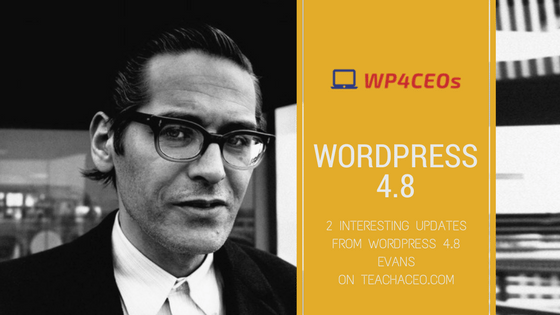The best way to write and describe the future of a business is through a business plan. The process of creating a one can range from a simple business plan to a detailed plan involving things such as extensive research and strategic marketing plan. However, despite the good associated with business plans, such as attracting financier, some entrepreneurs believe that it's on the phasing out.
We asked entrepreneurs and business owners their thought on the current and future state of business plans and here's what they had to say;
#1- Business plan are very much ALIVE and Well

I am a business consultant and we start a plan for every client. I need to see what is in their head and their team needs to see what is the overall plan for growth and hiring. Too many business owners wing it, hoping on a prayer when in fact if they took the time up front to map out exactly what needs to happen in Sales Marketing, Operations and Finance miracles can happen! Clarity is KING! A business plan can save you a ton of time and money in launching the wrong products or not evaluating what you really need to charge! It is the guiding force in our business! It pays to take the time to think through your ideas not just launch your ideas. I have saved clients MILLIONS by putting the plan and the structure together upfront, no more chasing shiny objects! That age-old saying if you fail to plan you plan to fail!
Thanks to Susie Carder
[divider]
#2- It depends on the type of business plan

A business plan in the form of a 50 page strategy document that takes 2 years to make and then sits in a dusty document in your computer is certainly dead and a waste of time. The new version of a business plan is a simple, actionable game-plan that integrates with your daily routine and schedule. This game-plan is regularly updated and tweaked with new insights that simplify, enhance, or eliminate elements of your strategy. The basic game-plan should be simple enough to describe in a few bullet points. My game-plan, for instance, is simply a few events & reminders in my calendar.
Thanks to Matt Rosenblum, Advanced Life Coach Marketing!
[divider]
#3- Not dead but evolving

The business plan is not dead, but is always evolving. As an owner you need to understand what direction you want to take the business. Without a plan that outlines your goals, metrics, and tactics you will be less likely to achieve them. Making sure your business plan is in place is necessary, but always remember that it's a living, breathing, document that must be adjusted as time goes on.
Thanks to Garrett Smith, RepCheckup!
[divider]
#4- They are still very essential

Business plans certainly are not dead. They are required not only to get a loan or raise money, but increasingly, I see them used by large companies as a way to screen small companies for their services. For example, I’m working with an ethnic grocery store now who needs for the landlord of a nice, Class A property they are trying to get into. I’m also working on a plan for a couple of contractors who need it just as part of the application process to become a distributor for a large manufacturing company. And most of all, if you are buying or selling a company, you need a plan. If you are the seller, you need to provide the buyer with a prospectus, which is a shorten business plan of sorts, and if you are the buyer and you do not do a plan, you are just accepting everything the seller says – you may as well shoot yourself in the foot.
Thanks to Valerie Koenig, Business Plans Hawaii!
[divider]
#5- Typical business plans for startups and are truly dead

As an entrepreneur, business owner and university professor, I can without a doubt tell you that typical business plans don't work for startups and are truly dead. Unfortunately, financial institutions continue to make a business plan a key requirement for obtaining a loan and so, this utterly ridiculous document continues to survive. A business plan is a guesstimated document that expects you to predict your customer, sales, marketing, and ultimately, how much money you are going to make – all at a stage when you are just trying to determine if you have a product that people want. Plans are for companies with a track record like Walmart or Target. Instead of a business plan, entrepreneurs need a strategy for understanding the business and be flexible enough to pivot when new information is obtained from their customers and market; this type of a strategy is ever-changing and constantly evolving so that you will consider internal and external business forces that may impact your company.
Thanks to Dushan Nikolovski, The Great Pitch!
[divider]
#6- In most contexts, yes, the business plan is dead

When I first became an entrepreneur in 1999, we were leaving the old world where the business plan made sense. In my first business attempt, we spent at least 80 hours on a business plan for a business that never even managed to launch a public website. Overplanning was a waste of time. If you were going for funding of some sort, a plan would be required. But today the big questions from those who fund are why you, and why is this business viable? If you aren't incredibly successful already and this new business hasn't already made sales or collected users, it's probably not. Spending a ton of time mapping out something when there are 20 variables and unanswered questions that can't be answered without moving forward makes no sense whatsoever. In our marketing agency, when we've worked with brand new businesses, we find that most of them have made a lot of assumptions, and sometimes even the most important assumption- that people actually want their product- is wrong. You have to prove viability first. Use the MVP model to get there. Forget anything like a business plan until you have something that's worth scaling.
Thanks to Brian Carter, The Carter Group!
[divider]
#7- It's alive but no longer focal point in money-raising

From an investing/VC perspective, sharing a full business plan has been replaced by short decks showcasing a problem, solution, addressable market and customer acquisition. However, many entrepreneurs have taken this as a cue to neglect to put together a business plan. As a business owner, going through the exercise of putting together a full business plan is a critical part of becoming an expert on the market the business is trying to serve. No the business plan is not dead. It’s just not the focal point of the money-raising process anymore. And all of the items an investor will come up via due diligence are often addressed via a business plan.
Thanks to Terence Channon, NewLead!
[divider]
#8-They have evolved

The only business plans that are dead are the ones that are written and shelved. Still an essential part of planning and managing a business, business plans have evolved over time from complex documents to more living documents. The modern business plan includes historical information and performance, current trends and a course for the future. Business plans help entrepreneurs, founders and managers alike not only document the company's journey but also set a course for the future. As Maya Angelou famously said you don't know where you are going until you know where you have been
Thanks to Christina L. May, Ilumine8 Marketing and PR!
[divider]
#9- It's far from dead

The business plan is far from dead! It's a crucial document that allows entrepreneurs to create a blueprint for their business and build its foundation. Remember that you have two options when it comes to drafting a business plan: a traditional business plan (which is generally written three to five years out and outlines every detail that can contribute to the success of the business) and a lean startup plan, which requires fewer details but still should be able to communicate the future of the business in an articulate manner.
Thanks to Deborah Sweeney, MyCorporation.com!
[divider]
#10- I believe that the traditional business plan as we know it, is dead

Business plans today aren’t very useful at helping businesses achieve their goals, markets are too unpredictable to expect a business to be able to stick to the same plan over a long period of time and make it work. Businesses need a fluid business strategy that can adapt to the market, which identifies what you want to achieve and how you are looking to achieve it. Instead of acting as a long term guide on how to run the business, the business plan’s main role now is mainly to secure investment. Small businesses will likely need a business plan when looking for investment, as investors need to see some evidence that they are going to get a return on their investment before they put money into a business, the business plan serves as this piece of evidence. Investors won’t invest into a business that doesn’t have a business plan, as this indicates to them that the entrepreneur has given little thought to how they are going to run the business. Other than this, the business plan has very little use.
Thanks to Steve Pritchard, Cuuver.com!
[divider]
#11- Our business plan from 5 years ago would be obsolete today

As the founder of Visme, a SaaS based Presentation tool, I can attest to the fact that our business plan from 5 years ago would be obsolete today. Within 6 months of our launch into a soft Beta we quickly realized there was a tremendous opportunity vs. our original plan and quickly pivoted and never looked back. So in my opinion, feel free to create a business plan, but be 100% open to the tide that comes with evolution of your business. As you progress you will find opportunities or even realized your original plan was nothing more than a guide and that it's not set in stone. I'm glad we did.
Thanks to Payman Taei, Visme!
#12- It's outdated
Unless you are trying to get a traditional business loan, there is no need to waste your time putting together this laborious document. A better option is the 1-3-5 plan. It is comprised of 1- smart goal, 3- strategies to bring the goal to reality, and 5- tactics for each strategy that will be measurable actions. It provides an easy-to-use map to help you achieve your goals. The best part is that it is a living document that is easy to update. A business plan is a dead document that is never updated or modified.
Thanks to Heather Eason, Select Power Systems, LLC!
[divider]
#13- It's not valuable anymore

The business plan made sense in an era when starting a new business cost tens of thousands (if not hundreds of thousands) of dollars. Given sizable startup costs, most entrepreneurs at the time needed to be very savvy at raising capital. To build confidence in their future vision, entrepreneurs used to spend a lot of time putting together a detailed business plan. Today, the cost of starting a new business has fallen significantly due to developments such as cloud technology, shared office space, and a growing pool of contract employees. As opposed to capital raising skills, today's entrepreneurs are mostly judged on their ability to execute. Good execution includes efficiently developing new products, making the right hiring decisions and correcting mistakes rapidly. While capital raising remains an important part of a startup's journey, investors today are much more focused on businesses with measurable traction. As a result, having a detailed business plan isn't valuable anymore, and is likely to die over time (if it isn't dead already).
Thanks to Deb Shaw, MarketsNow!
[divider]
#14- Business plans will continue to be handrails

Planning is always critical, so the process of business planning will never die. But the typical business plan, based largely on a static snapshot of market conditions and extrapolating a linear progression of demand, resources and revenue is obsolete. Business plans as execution documents will continue to be handrails while business plans as strategy documents will have dramatically expanded scope in time and range of opportunities and threats inherent in accelerating market and technological disruption.
Thanks to Ed Marsh, Consilium Global Business Advisors, LLC!
[divider]
#15- It's involves work which people are not taking the time to do it

NO. Of course, the business plan is NOT dead. But in this instant gratification, shortcuts, and 280 character world people are not taking the time to do the work. The work includes research, strategy development, and tactical plan. Sure you can fire, ready, aim but I see way too many companies burn through cash too fast. There are four legs to the table: Strategy, Talent, Money, and Technology. My advice is to stay away from the business plan templates but use a good outline and do the research. Once that's done begin crafting a business plan that you can execute with given resources time, money, and knowledge. Test and measure with an attribution model that tells you when you veer off your direction.
Thanks to George Schildge, Matrix Marketing Group!
[divider]












































 |
|